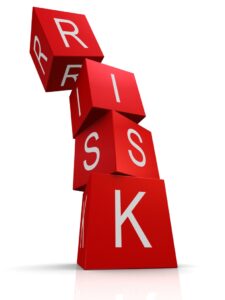But surely getting a grade B+ is good. Isn’t it?

The world uses Standard & Poor’s ratings fluently. But they’re not always as good as they sound.
In the days of getting grades for exam work, I was always happy with a B. A grade C was generally considered to be a pass and passing with a bigger margin than necessary has always struck me as a bit of a waste of effort!
So I’m personally “hard wired” to think of a B as good news. This means that when I hear that bonds issued by the Greek government have been graded to BBB-, my instinct is to think that this all sounds rather good, all things considered.
To quote from the Standard and Poor’s website, these are the definitions that they use:
‘AAA’ Extremely strong capacity to meet financial commitments. Highest Rating.
‘AA’ Very strong capacity to meet financial commitments.
‘A’ Strong capacity to meet financial commitments, but somewhat susceptible to adverse economic conditions and changes in circumstances.
‘BBB’ Adequate capacity to meet financial commitments, but more subject to adverse economic conditions.
‘BBB-‘ Considered lowest investment grade by market participants.
‘BB+’ Considered highest speculative grade by market participants.
‘BB’ Less vulnerable in the near-term but faces major ongoing uncertainties to adverse business, financial and economic conditions.
‘B’ More vulnerable to adverse business, financial and economic conditions but currently has the capacity to meet financial commitments.
‘CCC’ Currently vulnerable and dependent on favourable business, financial and economic conditions to meet financial commitments.
‘CC’ Currently highly vulnerable.
‘C’ Currently highly vulnerable obligations and other defined circumstances.
‘D’ Payment default on financial commitments.
Of course, the higher the risk, the greater the return. This means that investing in Greek bonds at the moment can bring considerable returns. Of course, it does so at considerable risk also. It may feel that governments will never default on their borrowings, but remember Iceland.
There’s no generally agreed definition of what constitutes investment grade, but it’s generally seen as BBB. This means that when S&P graded Greek bonds to BBB-, it was a quasi-official statement that the Greek government was in serious trouble. The result is that yields on these bonds jumped to 15%. There’s money to be made from holding Greek government bonds, but only if you’re willing to take some risk of losing it.







